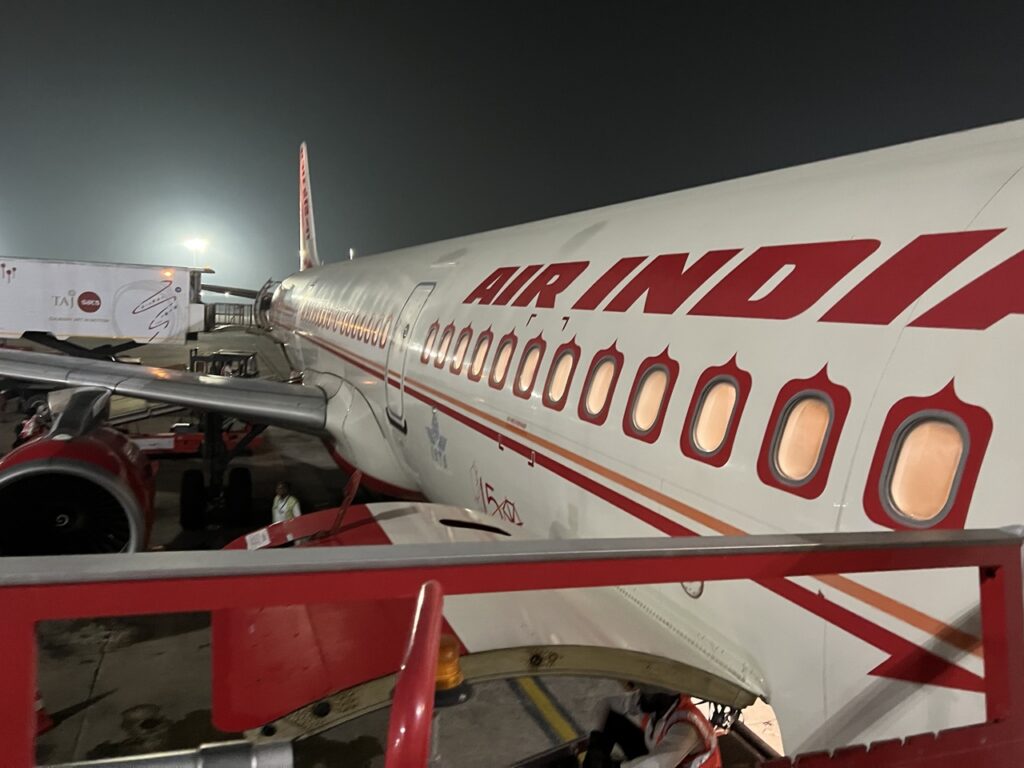Tata Group airline Air India has signed an agreement with KSU Aviation to launch TaxiBot operations at Delhi and Bengaluru airports for its Airbus A320 Family of aircraft.
The use of the semi-robotic TaxiBot aircraft ground handling vehicle has the benefit of reducing overall operational emissions by cutting out the need for the aircraft to use its own engines during the taxi procedure.
The adoption of TaxiBots at the two major Indian airports at Delhi (DEL) and Bengaluru (BLR) will reportedly result in a potential saving of approximately 15,000 tonnes in fuel consumption for the Indian airline over three years.
TaxiBot ground handling vehicle
A semi-robotic vehicle, the TaxiBot acts as an extension of the aircraft’s nose landing gear once it is attached to the aircraft.
It is then all used to tow aircraft from the airport terminal gate to the taxi-out point for departure. For arriving flights, it will similarly tow the aircraft from the terminal gate after landing (taxi-in phase) without utilising the aircraft’s engines, thus saving jet fuel.
The pioneering technology curbs fuel consumption, carbon emissions, noise levels, as well as costs for airlines.
Elaborating on the adoption of TaxiBot, Campbell Wilson, CEO & MD, Air India, said, “As a responsible airline, Air India is constantly looking for ways to improve sustainability and manage our carbon footprint.”
[monsterinsights_popular_posts_inline]
“The deployment of TaxiBots is one more example of our commitment to reduce emissions and fuel consumption.”
“This collaboration with KSU will allow us to better assess the capabilities of TaxiBots, and potentially lead to greater deployment across Air India’s subsidiaries and other airports.”
Airline sustainability measures
Air India is investing in a range efficiency measures to adopt sustainability as part of its regular fleet operations. The current initiatives include the continued induction of newer ‘Next Generation’ aircraft, better procedures and driving operations with the deployment of innovative technology.
A key sustainability measure in the international aviation sector is the uptake of Sustainable Aviation Fuels (SAF).
Last year, the Air India group entered a Memorandum of Understanding with the Council of Scientific and Industrial Research (CSIR) – Indian Institute of Petroleum to collaborate on the research, development, and deployment of sustainable aviation fuel resources.
KSU Aviation comments
Speaking on the move by air India to take up the TaxiBot ground handling equipment, Dr. Ashwani Khanna, Director, KSU Aviation Pvt. Ltd., said:
“We are excited about the formal induction of TaxiBot as part of Air India’s focussed approach to address its carbon footprint.”
“Air India is undergoing a massive transformation and has adopted sustainable practices as an integral part of this journey.”
“We are committed to partner with like-minded organisations like Air India to leverage modern day technology in reducing carbon footprint and accelerate the pursuit of being net zero.”
In October 2019, Air India, in a global first, used a TaxiBot on an Airbus A320 aircraft operating a commercial flight with passengers on board.









